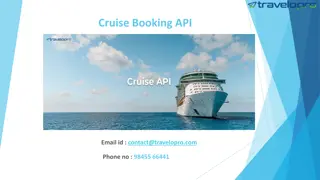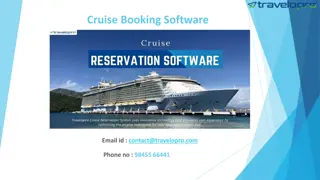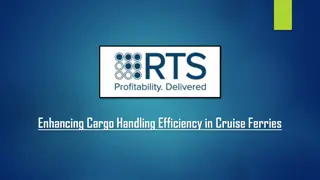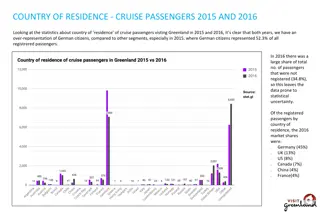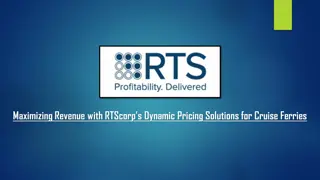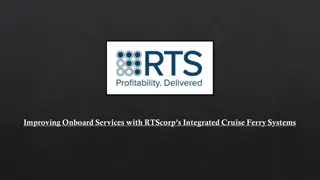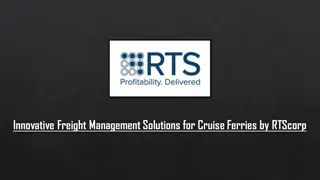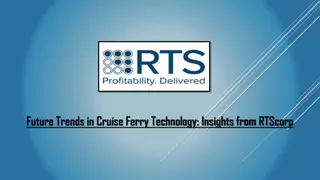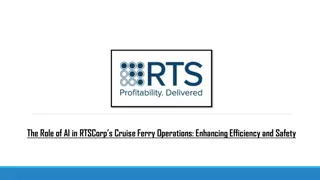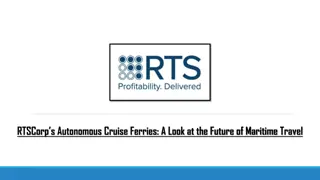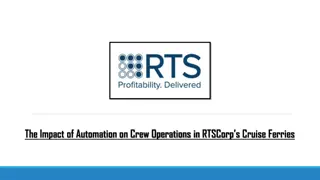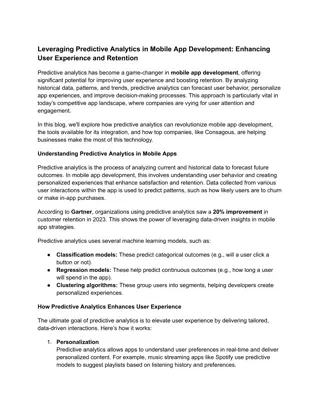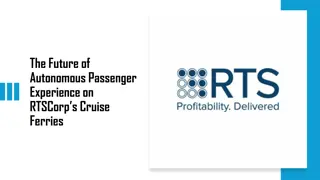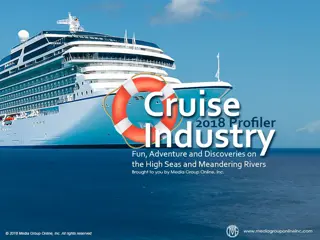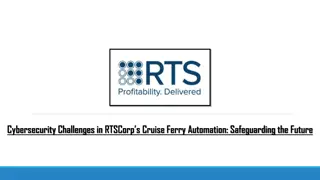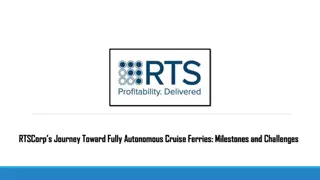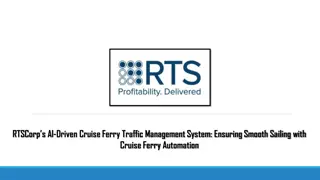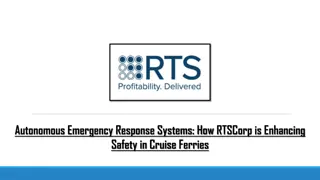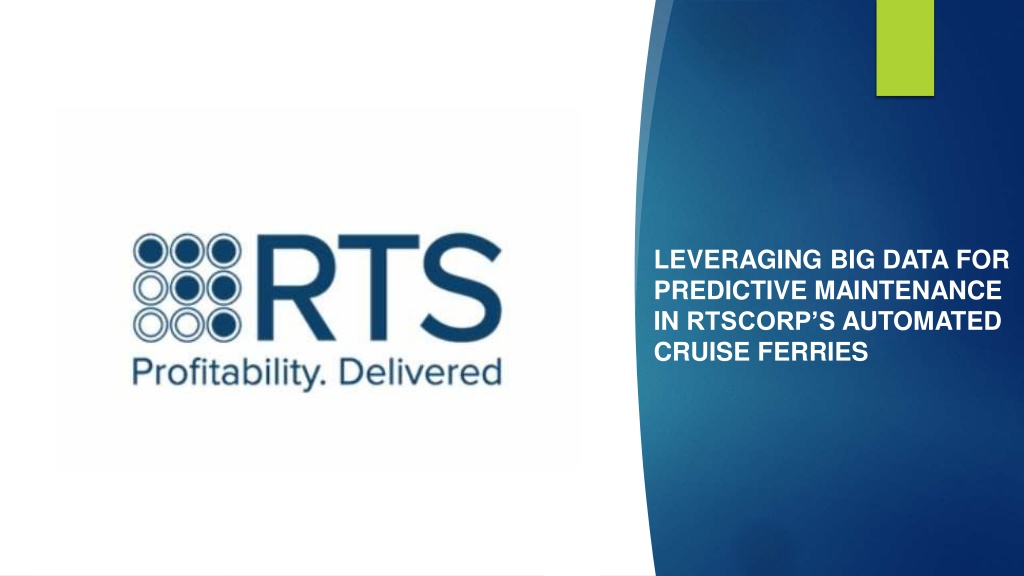
Leveraging Big Data for Predictive Maintenance in RTSCorp’s Automated Cruise Ferries
In todayu2019s maritime industry, technology plays a critical role in enhancing efficiency, safety, and sustainability. RTSCorpu2019s automated cruise ferries represent a leap in innovation, integrating automation with state-of-the-art big data ana
Download Presentation

Please find below an Image/Link to download the presentation.
The content on the website is provided AS IS for your information and personal use only. It may not be sold, licensed, or shared on other websites without obtaining consent from the author. Download presentation by click this link. If you encounter any issues during the download, it is possible that the publisher has removed the file from their server.
E N D
Presentation Transcript
LEVERAGING BIG DATA FOR PREDICTIVE MAINTENANCE IN RTSCORP S AUTOMATED CRUISE FERRIES
In todays maritime industry, technology plays a critical role in enhancing efficiency, safety, and sustainability. RTSCorp s automated cruise ferries represent a leap in innovation, integrating automation with state-of-the-art big data analytics to optimize performance. A key focus area for this innovation is predictive maintenance, where vast data collected from cruise ferry automation systems is harnessed to predict, prevent, and address technical issues before they become critical.
The Role of Big Data in Predictive Maintenance Predictive maintenance is revolutionizing traditional maintenance practices. In automated cruise ferries, countless sensors continuously monitor the performance of various systems like propulsion, navigation, fuel consumption, and even passenger services. These sensors generate a massive stream of data, referred to as big data, which is then analyzed in real-time to detect anomalies, trends, and potential failures. The volume and complexity of this data are immense, making it impossible to analyze manually. This is where advanced algorithms and machine learning techniques come into play. These tools are capable of identifying patterns within the data that indicate when a part or system is likely to fail. By predicting potential failures, RTSCorp can carry out maintenance at the most opportune times, avoiding breakdowns, reducing downtime, and optimizing repair schedules.
Benefits of Predictive Maintenance in Cruise Ferry Automation Minimizing Downtime: Downtime can result in significant financial losses and customer dissatisfaction. By utilizing prescient upkeep, RTSCorp can expect gear issues and plan repairs amid non-operational hours, guaranteeing that their computerized voyage ships run easily and proficiently. This too minimizes the hazard of sudden, exorbitant breakdowns in the center of operations. Cost Efficiency: Predictive maintenance helps RTSCorp lower operational costs by preventing unnecessary replacements of equipment and reducing labor costs. Instead of sticking to a fixed maintenance schedule where components may be replaced prematurely, big data analytics ensures that parts are only replaced when necessary, based on their actual wear and tear. Enhanced Safety: The safety of passengers and crew is of utmost importance in the cruise ferry industry. Automation enhances safety by eliminating human errors, but it is predictive maintenance that ensures that the machinery and systems are functioning at optimal levels. Early detection of anomalies allows for timely interventions, reducing the risk of malfunctions that could compromise safety. Sustainability: With cruise ferry automation, sustainability becomes a key concern. Predictive maintenance can significantly reduce the environmental footprint by optimizing fuel consumption and reducing waste. By ensuring systems operate at peak efficiency, the ferries consume less fuel, thereby lowering greenhouse gas emissions and contributing to RTSCorp s sustainability goals.
Real-Time Data Integration in RTSCorps Automated Ferries RTSCorp s approach to integrating big data for predictive maintenance in their cruise ferries involves a seamless connection between real-time data acquisition, cloud computing, and analytics. The automated systems onboard continuously transmit data to a central platform where advanced algorithms process it. Predictive models are updated regularly based on historical data and new information, ensuring that the predictive capabilities evolve over time, improving accuracy and reliability. Conclusion Big data is proving to be a game-changer in the maritime industry, especially in cruise ferry automation. RTSCorp s focus on leveraging big data for predictive maintenance ensures that their automated cruise ferries not only operate efficiently but also maintain high standards of safety and sustainability. As the industry evolves, predictive maintenance driven by big data analytics will continue to set new benchmarks for operational excellence, making RTSCorp a leader in the realm of smart ferry solutions.


